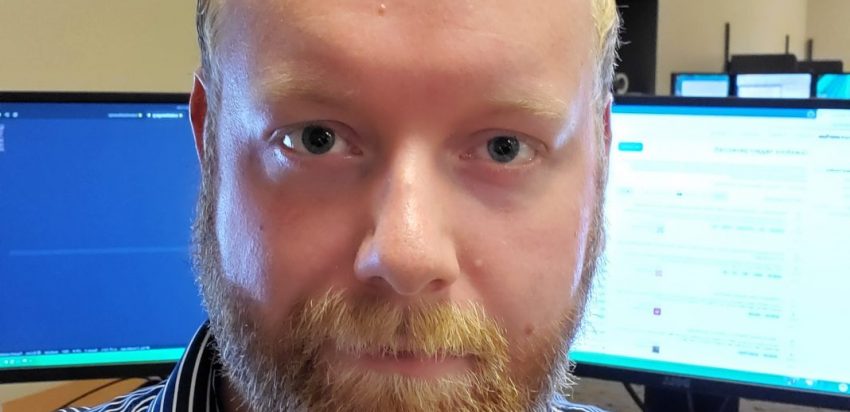4 Lessons Learned at a Loan-Financed Coding Boot Camp

Tim Lukens loved to make websites when he was younger, but back then, he thought it was just a hobby. He didn’t think it would take him anywhere or make him any money. Little did he know the demand for digital skills would skyrocket by the time he entered the workforce.
After years of working various service jobs, Tim realized that coding was on the rise—and might actually be a career worth pursuing. “I was working 50 hours a week at a metal shop,” he said. “Before that, I was a security guard, I delivered pizzas, I held a retail job. I worked just about every job you could think of before I got into coding.”
Tim started teaching himself JavaScript and spent the next two years refining his application- and website-building skills. Eventually, he decided to take the next step and look into coding boot camps.
1. There’s always support for those who need it.
In March 2018, Tim found the perfect opportunity to gain the skills he needed. He knew he wanted to enroll in the KU Coding Boot Camp, but in order to be able to afford the program, he needed financial assistance. Tim didn’t know if he would qualify for a loan, but the application experience put his mind at ease. Within a few days, he had spoken to a loan coordinator, gathered the necessary documents, and filled out the required paperwork.
“I fully recommend the Climb loan to anyone considering applying for one,” said Tim. “If you’re truly passionate about coding, and this is the extra step you need to make it possible, don’t hesitate to explore this option.”
2. Hard work—of any kind—is all the experience you’ll need.
“I have no undergraduate degree—or a degree of any kind. I just have my GED,” Tim said.
A hard-earned work ethic and years of self-taught coding knowledge gave Tim a leg up coming into boot camp. “I was seen as a resource by some of the other students,” said Tim. “I didn’t know everything, but I had the basics down. That strong foundation—and just being willing to work—made a really big difference.”
3. Always bring fun into your work—even if things don’t go as planned.
“I enjoyed just about everything that we did in the class,” said Tim. He worked on a variety of interesting group projects that empowered him to develop his soft and hard skills alike.
For one project, Tim’s group created an application where users could create shopping lists for the holidays. It incorporated a lot of different software, and because of this, it didn’t come together as smoothly as the group would have hoped. But, they still showed up to their presentation wearing holiday gear—and had a blast sharing their work.
Tim’s final project was a social networking hub for developers, where individuals in the software development community could go to find a mentor or an apprentice. The coding community is always looking for new ways to share knowledge—and Tim knows this project has real potential. He plans to come back to it and polish the code in any free time he has in the future.
Regardless of the outcome, Tim knows all the trial and error was worth it.
4. Finding fulfilling work is worth the effort
About a month after Tim completed the boot camp, he was offered a position as an application developer at KVC Health Systems.
Tim works alongside a team of developers to build applications for state foster-care agencies. His projects are eliminating the need for social workers to carry paperwork in hand and modernizing processes. “I hope to stick with it, continue to improve, and eventually become a senior developer,” said Tim. “Maybe someday I’ll even be a lead developer. I’m really excited by the cool work I’m doing.”

 Live Chat
Live Chat
